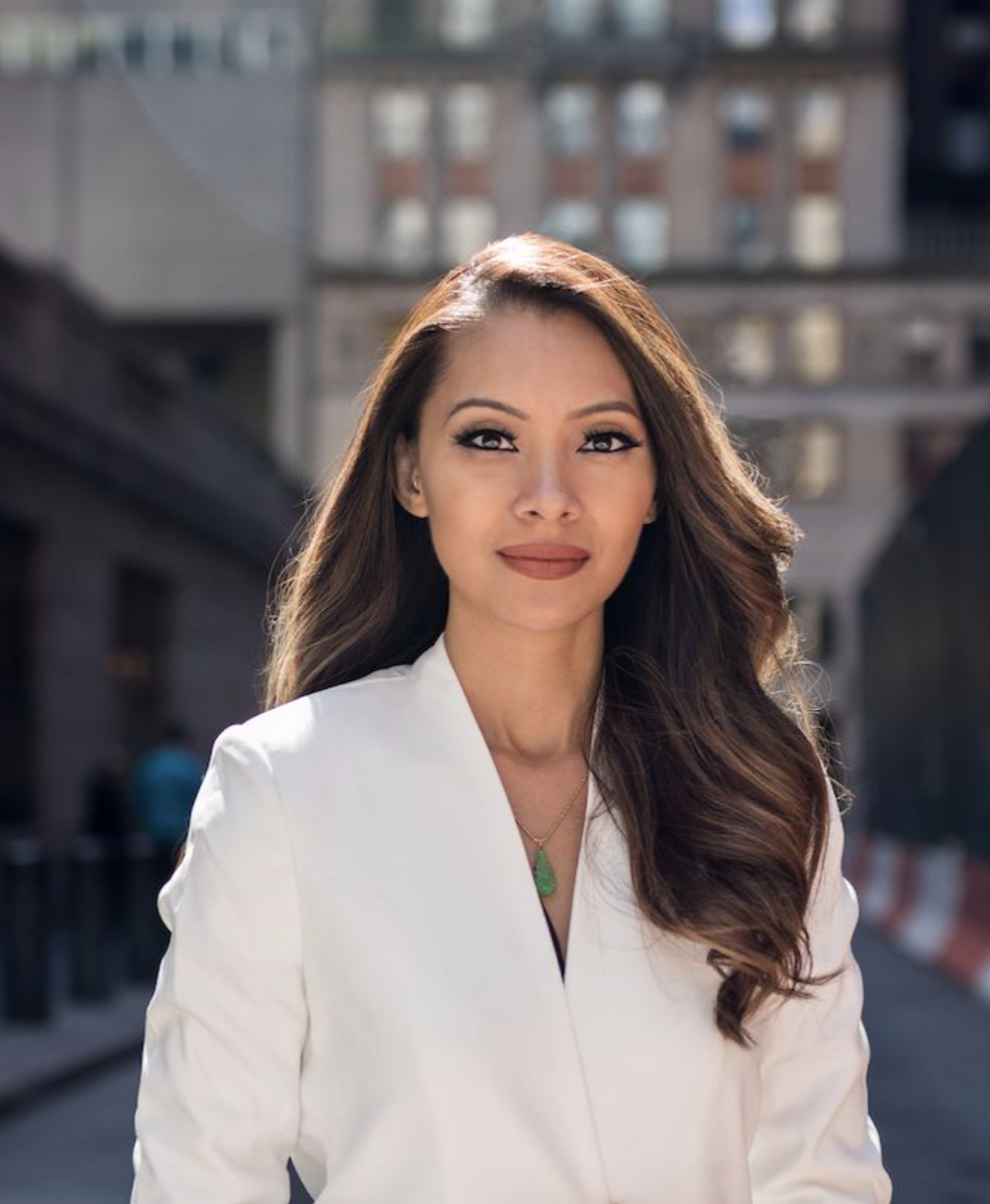Community Organization Spotlight III: Asian American Journalists Association (AAJA-LA) 📝
Part III of our Speed Dating: Get To Know Your Local APIDA Community Orgs series, a project headed by Catherine Kim, our Diversity Liaison, and Christopher Liu, our External Community Chair.
Introduction
Speed Dating: Get To Know Your Local APIDA Community Orgs is a new initiative where we will be interviewing APIDA focused community organizations and APIDA professionals around the Los Angeles area and sharing with you all the most exciting highlights! We aim to showcase the organization to USC students, as well as ask about topics that we think are most pressing to USC students right now: ranging from work/volunteering opportunities, APIDA race relations, professional development and how COVID-19 has been affecting org/business operations. We will be posting these on the APASA website as a yearlong project, so you can look forward to them here!
“One of the most difficult parts of being an Asian American journalist is overcoming the “model minority” myth. Even though journalists are supposed to be outspoken and extroverted, Asians are still perceived as being quiet and non-aggressive. However, you don’t have to be loud and boisterous to get your point across. Instead, choose to influence others and make your mark by being a quick-thinker, hard-worker, and a creative, compassionate problem solver.”
- Hieu Gray, VP of Community Engagement at AAJA-LA
Hieu Gray currently serves as the Vice President of Community Engagement of the Asian American Journalists Association-Los Angeles Chapter (AAJA-LA), where she is the liaison between the board and the members as well as in charge of overseeing chapter membership. As an award-winning writer/producer, filmmaker, and social media personality, Hieu has worked at CNN for over a decade on some of its biggest shows, such as Larry King Live and Anthony Bourdain Parts Unknown. Currently, Hieu runs her own boutique production company that focuses on highlighting Asian American narratives.
I would like to extend a huge thank you to Hieu for taking the time out of her busy schedule to participate in this interview and share her knowledge and expertise with APASA!
APASA x AAJA-LA Q&A
Q: Hello, Hieu! It is so great to meet you! To start off our interview, can you give our readers a little introduction of yourself (name, position at AAJA-LA, what your everyday tasks/role looks like)?
A: Hi, everyone! My name is Hieu Gray, and I am the vice president of community engagement here at AAJA-LA. In my role with AAJA-LA, I act as the primary liaison between the board and our members. Specifically, I am responsible for engaging with the chapter membership through our social media platforms and website. I help with new member recruitment and retainment of existing members. Since joining the board this year, I conducted a membership audit, overhauled our Instagram presence which resulted in a 50% increase of new followers, and created a more cohesive and unified look for all of our marketing and communication assets. I also play a pivotal role in promoting our various events throughout the year.
Picture of the AAJA Executive Board Bonding Event!
Q: What is AAJA-LA’s mission, and what does that look like within the broader LA community?
A: We are the LA Chapter of AAJA which stands for the Asian American Journalists Association. It is a national nonprofit educational and professional organization consisting of members who work in print, broadcast, digital and students interested in journalism careers. Locally, we have over 100 members. We will be celebrating our 40t h anniversary next year. Our mission consists of four parts:
To provide a means of association and support among Asian American and Pacific Islander journalists.
To provide encouragement, information, advice, and scholarship assistance to Asian American and Pacific Islander students who aspire to professional journalism careers.
To provide to the Asian American and Pacific Islander community awareness of news media and an understanding of how to gain fair access.
To research and point out when news media organizations stray from accuracy and fairness in the coverage of Asian Americans and Pacific
Islanders.
This year, we’ve worked on creating more inclusivity and partnering with other journalism organizations like NABJ (National Association of Black Journalists), NAHJ (National Association of Hispanic Journalists), and others to promote greater dialogue and unity between our organizations. We hosted a virtual mixer called “United We Stand” to open up conversations on how we can be better allies.
Q: Can you tell us about some major projects and initiatives that have or are currently being launched by AAJA-LA?
A: This year has been dramatically different from years past. As an organization, we have had to pivot and transition to organize online events for our members. For the first time in our history, AAJA held its national convention virtually this summer and it was an astounding success with record-breaking registrations. What we learned is that Asian American journalists are yearning for a sense of community during these unprecedented times and are turning to us for community and leadership.
Before the pandemic hit, we organized, along with CAPE (the Coalition of Asian Pacifics in Entertainment), a free post-Oscar celebratory screening of the movie Parasite. Since then, we’ve had to transition to virtual events, including a town hall featuring George Takei, Tzi Ma, and experts in various fields to talk about the anti-Asian racism that has proliferated due to fear of the pandemic. Instead of crippling us, the pandemic has only made us stronger as an organization and made us rethink how to better serve our members.
Flyer for a Virtual Town Hall held on May 30,2020 to discuss the effects of COVID-19 in the APIDA community
Q: The journalism/press identity has often been identified as an area that still lacks diversity, specifically (in this case) with the lack of APIDA journalists and reporters. How could we, as a society, increase the representation and uplift the voices of APIDA journalists and reporters?
A: One of our main objectives has always been to nurture and mentor the next generation of APIDA journalists. During the summers, we offer a robust internship program where we place highly-qualified students with various news groups in LA and Orange County. We recently organized a virtual Internship and Career Mixer to introduce our interns, as well as, offer tips and advice for landing that coveted first journalism job. We also have previously organized a virtual panel “That Fast Break” on how to break into sports journalism.
As a national organization, we have used our platform to act as a media watch group for coverage of Asian Americans and provided guidance on how to report on COVID-19. Now more than ever, representation matters, and we are committed to providing the resources necessary for journalists to continue to do their job.
Flyer for the “A Story Like No Other” Event
Q: Given the unprecedented times, many industries have critically suffered from the impacts of COVID. How has AAJA-LA adapted to the COVID pandemic?
A: We have had to become quite nimble. At the onset of the pandemic, we acted quickly and put into place a Reporting Relief Fund to provide assistance to members whose jobs have been affected by COVID-19. We were able to reward five recipients $2000 each to complete projects related to underserved communities. We also offered need-based stipends to attend this year’s virtual convention. In addition to providing assistance, we also held virtual events focused on how to report the news during COVID-19. For example, we organized “A Story Like No Other” an online conversation with Asian American journalists covering the pandemic.
We also partnered with the #WashTheHate campaign and produced a video to provide greater awareness of the increased violence and discrimination against Asians related to COVID-19.
Q: Moving on to a more personal note, can you tell us about your individual journey and how you got to your current position at AAJA-LA?
A: AAJA will always hold a special place in my heart. It has been monumental in shaping my career as a journalist and producer. They helped me get my foot in the door at the very beginning. I cannot stress enough the importance of networking. As a junior in college, I won a scholarship from the Atlanta chapter at AAJA and used the connections I made to land a coveted internship at CNN. When I graduated, I was able to secure an entry-level position. I was at CNN for over a decade, quickly rising through the ranks to Senior Producer working on some of the network’s biggest shows like Anthony Bourdain Parts Unknown and Larry King Live. Currently, I have my own boutique production company focused on highlighting Asian American narratives. I just wrapped up a food documentary about the Vietnamese diaspora in Paris told through the lens of food called Quan 13. I am currently developing several other documentaries, most notably, Of Salt & Sea, about the importance of fish sauce in Vietnamese culture and how it should be elevated with the same reverence paid to olive oil, truffles, and other well-respected western ingredients.
I’ve only been in LA for a little over two years now. AAJA-LA was instrumental in making me feel immediately at home. I joined the board this year as a chance to give back to the community and take on a bigger leadership role.
Q: Going off of that, what do you think is the most difficult part of your job? For instance, what was a challenge you encountered and had to overcome?
A: For me, I think one of the most difficult parts of being an Asian American journalist is overcoming the “model minority” myth. Even though journalists are supposed to be outspoken and extroverted, Asians are still perceived as being quiet and non-aggressive. While at CNN, I had to get over my own fears and inhibitions of speaking up in order to succeed. I learned how to find my voice. You don’t always have to be loud and boisterous to get your point across. I used my reputation as a quick-thinking, creative problem solver, and hard worker to influence others. I was lucky to have mentors who were invested in my career and advocates who fought for me. It’s important to nurture relationships and seek out more senior-level allies who will stand up and vouch for you as your career progresses.
Q: Are there any upcoming opportunities for students to volunteer, collaborate, or intern at AAJA-LA?
A: We are always looking for volunteers! Our next event is our annual Trivia Bowl which has been a mainstay within the community. This year, it will be virtual, and we are hoping to draw in a bigger audience. Those who are interested can email us at aajalalosangeles@gmail.com.
Q: Lastly, are there any future goals, plans, and initiatives that AAJA-LA has in mind?
A: As mentioned earlier, we are currently planning our annual Trivia Bowl. It’s been our biggest fundraiser but this year we plan to offer it as a free online community event due to the pandemic. Our signature event, Trivia Bowl, is a time for our members to have fun and socialize while building community and engaging in friendly competition.
We have several other panels in the works, including those focused on project reporting, narrative writing, broadcasting, and food journalism.
Flyer for the “United We Stand” event held on June of 2020, which focused on representation in the journalism industry and the need to amplify diverse voices
Thank you so much once again to Hieu Gray & AAJA-LA for taking the time to do this interview with us! I hope everyone was able to learn more about the amazing work AAJA-LA is doing, and don’t forget to be on the lookout for more community organization spotlights coming soon!





